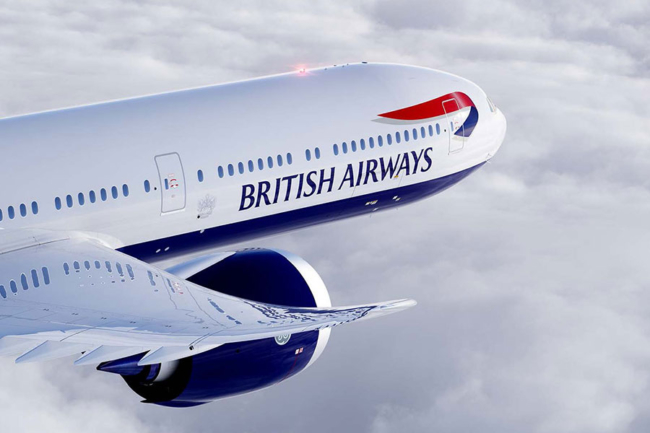British Airways has its debt rating cut to ‘junk’ status by Fitch
Links on Head for Points may support the site by paying a commission. See here for all partner links.
British Airways has become the first major European airline to have its debt rating cut to ‘junk’.
Fitch, the ratings agency, cut BA’s rating from BBB- to BB+ today.
(For clarity, this downgrade is specifically for British Airways and not for its parent, International Consolidated Airlines Group. This is because the debt which has been downgraded is ringfenced against the BA operation.)
You can see a summary of Fitch’s reasoning here.

Fitch believes that British Airways will not be operating a schedule as large as it did in 2019 until 2023, and that even by 2023 aircraft will be emptier than they were in 2019.
To be precise, it is expecting BA to operate 22% fewer seats in 2021 than it did in 2019, and 5% fewer in 2022. Even though it will be operating a comparable schedule in 2023, Fitch is still assuming that it sells fewer seats per flight (80% vs 84%) than it did in 2019. It is also expecting a single-digit decline in average ticket prices.
The airline is still expected to deliver positive operating cash flow in 2021 but this will not cover its debt and capital expenditure requirements. 90% of IAG fuel requirements are hedged for 2020 so there is minimal benefit from the current low oil price.
As well as cutting the rating to ‘junk’, British Airways debt has been put on ‘negative outlook’. This means that Fitch believes that it is more likely to be downgraded further rather than given back its investment grade rating.
Part of the reason for the negative outlook, apart from uncertainty over the speed of demand recovery, is the current, expensive, aircraft order book for British Airways.
Last year, it placed a firm order with Boeing for 18 x Boeing 777-9 aircraft (pictured below). These have a list price – admittedly before a substantial discount which BA will have negotiated – of $442 million each.
As of February 2019, British Airways was also committed to 12 x Boeing 787s, four 777-300ERs and 18 x Airbus A350, albeit some of these are already delivered.
It is worth noting that S&P and Moody’s still retain an investment grade credit rating on British Airways, albeit with a negative outlook. This is important as many funds will be forced to sell their BA debt when two of the three rating agencies move it to ‘junk’ status.
One upside is that Fitch does believe that British Airways has enough liquidity to fund itself during Quarter 2, with recovery beginning from July. It believes that the culture of cost-cutting and its strong position on valuable North American routes will provide strong support.
You can read more on the Fitch website here.
PS. If you are not a regular Head for Points visitor, why not sign up for our FREE weekly or daily newsletters? They are full of the latest Avios, airline, hotel and credit card points news and will help you travel better. To join our 70,000 free subscribers, click the button below or visit this page of the site to find out more. Thank you.

How to earn Avios from UK credit cards (July 2025)
As a reminder, there are various ways of earning Avios points from UK credit cards. Many cards also have generous sign-up bonuses!
In February 2022, Barclaycard launched two exciting new Barclaycard Avios Mastercard cards with a bonus of up to 25,000 Avios. You can apply here.
You qualify for the bonus on these cards even if you have a British Airways American Express card:

Barclaycard Avios Plus Mastercard
Get 25,000 Avios for signing up and an upgrade voucher at £10,000 Read our full review

Barclaycard Avios Mastercard
Get 5,000 Avios for signing up and an upgrade voucher at £20,000 Read our full review
There are two official British Airways American Express cards with attractive sign-up bonuses:

British Airways American Express Premium Plus Card
30,000 Avios and the famous annual Companion Voucher voucher Read our full review

British Airways American Express Credit Card
5,000 Avios for signing up and an Economy 2-4-1 voucher for spending £15,000 Read our full review
You can also get generous sign-up bonuses by applying for American Express cards which earn Membership Rewards points. These points convert at 1:1 into Avios.

American Express Preferred Rewards Gold Credit Card
Your best beginner’s card – 20,000 points, FREE for a year & four airport lounge passes Read our full review

The Platinum Card from American Express
50,000 bonus points and great travel benefits – for a large fee Read our full review
Run your own business?
We recommend Capital on Tap for limited companies. You earn points worth 0.8 Avios per £1 on the FREE standard card and 1 Avios per £1 on the Pro card. Capital on Tap cards also have no FX fees.

Capital on Tap Visa
NO annual fee, NO FX fees and points worth 0.8 Avios per £1 Read our full review

Capital on Tap Pro Visa
10,500 points (=10,500 Avios) plus good benefits Read our full review
There is also a British Airways American Express card for small businesses:

British Airways American Express Accelerating Business Card
30,000 Avios sign-up bonus – plus annual bonuses of up to 30,000 Avios Read our full review
There are also generous bonuses on the two American Express Business cards, with the points converting at 1:1 into Avios. These cards are open to sole traders as well as limited companies.

The American Express Business Platinum Card
50,000 points when you sign-up and an annual £200 Amex Travel credit Read our full review

The American Express Business Gold Card
20,000 points sign-up bonus and FREE for a year Read our full review
Click here to read our detailed summary of all UK credit cards which earn Avios. This includes both personal and small business cards.



 Rob
Rob 





Comments (62)